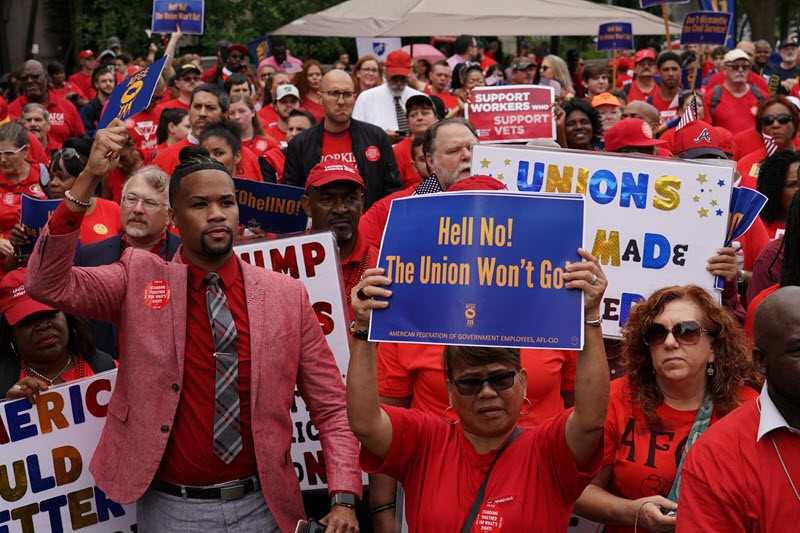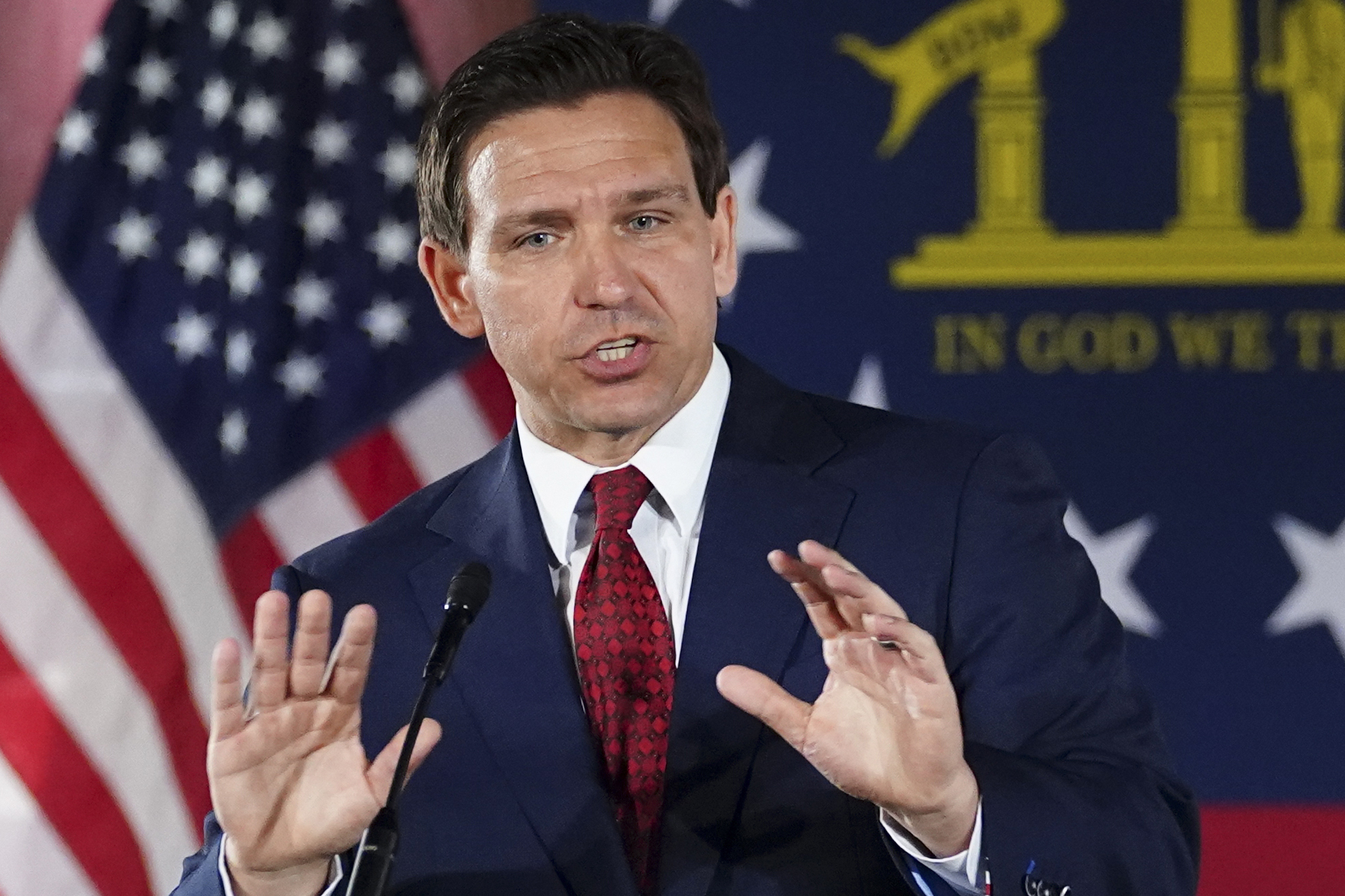The legal drama surrounding former President Donald Trump continues to unfold, with recent developments shedding light on the constitutionality of blocking funds to his organization. In a landmark ruling, a federal judge declared that the decision to block funds to Trump's organization was unconstitutional. This decision has sparked significant discussions about the boundaries of executive power and the implications for future political actions.
This case not only highlights the ongoing legal battles involving Trump but also underscores the importance of understanding the legal framework that governs the allocation of public funds. As the political landscape in the United States becomes increasingly polarized, the implications of this ruling could shape how future administrations handle similar situations.
In this article, we will delve into the details of the ruling, its legal background, and its broader implications. We will also explore the arguments presented by both sides and analyze the potential impact on the political and legal systems in the U.S.
Read also:Kansas Jayhawks Basketball A Comprehensive Dive Into A Legacy Of Excellence
Table of Contents
- Background of the Case
- Legal Framework and Constitutional Issues
- Arguments Presented by Both Sides
- The Judicial Decision
- Implications for the Future
- Long-Term Impact on Politics and Law
- Expert Opinions and Analysis
- Public Reaction and Media Coverage
- Related Cases and Precedents
- Conclusion and Call to Action
Background of the Case
The case involving the "Judge Rules Trump's Fund Block Unconstitutional" stems from a broader legal battle over the allocation of federal funds. The controversy arose when the administration sought to block financial support to organizations associated with Trump, citing alleged violations of ethical standards and conflicts of interest.
This move was met with resistance from Trump's legal team, who argued that such actions violated the constitutional rights of the former president and his affiliated entities. The case gained national attention due to its implications for the separation of powers and the limits of executive authority.
Chronology of Events
Here is a timeline of key events leading up to the ruling:
- January 2023: Initial decision by the administration to block funds.
- March 2023: Trump's legal team files a lawsuit challenging the decision.
- June 2023: Federal judge hears arguments from both sides.
- September 2023: Judge rules the fund block unconstitutional.
Legal Framework and Constitutional Issues
The legal foundation of the case revolves around the First Amendment and the principle of due process. The judge's ruling emphasized that blocking funds based on political affiliations or personal vendettas violates the constitutional rights of individuals and organizations.
Key Legal Principles
Some of the key legal principles involved in this case include:
- First Amendment protections against government interference in free speech and association.
- Due process requirements ensuring fair treatment under the law.
- Separation of powers to prevent overreach by any branch of government.
Arguments Presented by Both Sides
The arguments presented by both sides in the case were robust and well-researched. The administration argued that blocking funds was necessary to uphold ethical standards and prevent misuse of public resources. On the other hand, Trump's legal team contended that such actions were politically motivated and unconstitutional.
Read also:Kurtwood Smith The Iconic Actor Behind Memorable Roles
Administration's Argument
The administration cited several instances where Trump's organizations allegedly engaged in unethical practices, justifying the decision to block funds. They argued that public funds should not be allocated to entities that do not adhere to the highest ethical standards.
Trump's Legal Team's Argument
Trump's legal team countered by arguing that the decision was politically motivated and violated the constitutional rights of the former president. They emphasized that the administration had failed to provide sufficient evidence to justify the fund block.
The Judicial Decision
In a landmark ruling, the federal judge declared that the decision to block funds to Trump's organization was unconstitutional. The judge cited the First Amendment and due process protections as the basis for the ruling, stating that the administration had overstepped its authority.
Key Points of the Decision
- The judge ruled that blocking funds based on political affiliations violated the First Amendment.
- The decision emphasized the importance of due process in administrative actions.
- The ruling set a precedent for future cases involving similar issues.
Implications for the Future
The ruling has significant implications for the future of political and legal actions in the United States. It reinforces the importance of upholding constitutional rights and ensures that executive actions are subject to judicial review.
Impact on Executive Authority
The decision limits the scope of executive authority by requiring adherence to constitutional principles. It serves as a reminder that administrative actions must be grounded in law and evidence, rather than political motivations.
Long-Term Impact on Politics and Law
The long-term impact of the ruling could shape how future administrations handle similar situations. It may lead to increased scrutiny of executive actions and a greater emphasis on transparency and accountability in government decision-making.
Changes in Policy and Procedure
As a result of the ruling, there may be changes in policy and procedure to ensure compliance with constitutional principles. This could involve revising guidelines for the allocation of public funds and strengthening mechanisms for judicial oversight.
Expert Opinions and Analysis
Legal experts have weighed in on the ruling, providing valuable insights into its significance. Many agree that the decision reinforces the importance of constitutional safeguards and highlights the need for checks and balances in government.
Insights from Constitutional Scholars
Constitutional scholars have noted that the ruling aligns with established legal principles and sets a positive precedent for future cases. They emphasize the importance of protecting individual rights and ensuring that government actions are lawful and justifiable.
Public Reaction and Media Coverage
The ruling has sparked significant public reaction and media coverage, with opinions divided along political lines. Supporters of Trump view the decision as a victory for constitutional rights, while critics argue that it undermines efforts to promote ethical standards in government.
Media Analysis
Media outlets have provided extensive coverage of the case, analyzing the legal and political implications of the ruling. The coverage has highlighted the complexities of the issue and the broader implications for the political landscape in the United States.
Related Cases and Precedents
The ruling in this case draws parallels with several other landmark cases that have addressed similar issues. These cases provide valuable insights into the legal framework governing the allocation of public funds and the limits of executive authority.
Notable Precedents
Some notable precedents include:
- Citizens United v. FEC: A case addressing campaign finance regulations and First Amendment rights.
- Bowsher v. Synar: A case examining the separation of powers and the role of Congress in administrative actions.
Conclusion and Call to Action
In conclusion, the ruling that "Judge Rules Trump's Fund Block Unconstitutional" has significant implications for the legal and political systems in the United States. It reinforces the importance of upholding constitutional rights and ensures that executive actions are subject to judicial review.
We invite readers to engage in the discussion by leaving comments, sharing the article, or exploring related content on our website. Understanding the legal and political landscape is crucial for informed citizenship, and we encourage everyone to stay informed and involved in the democratic process.


